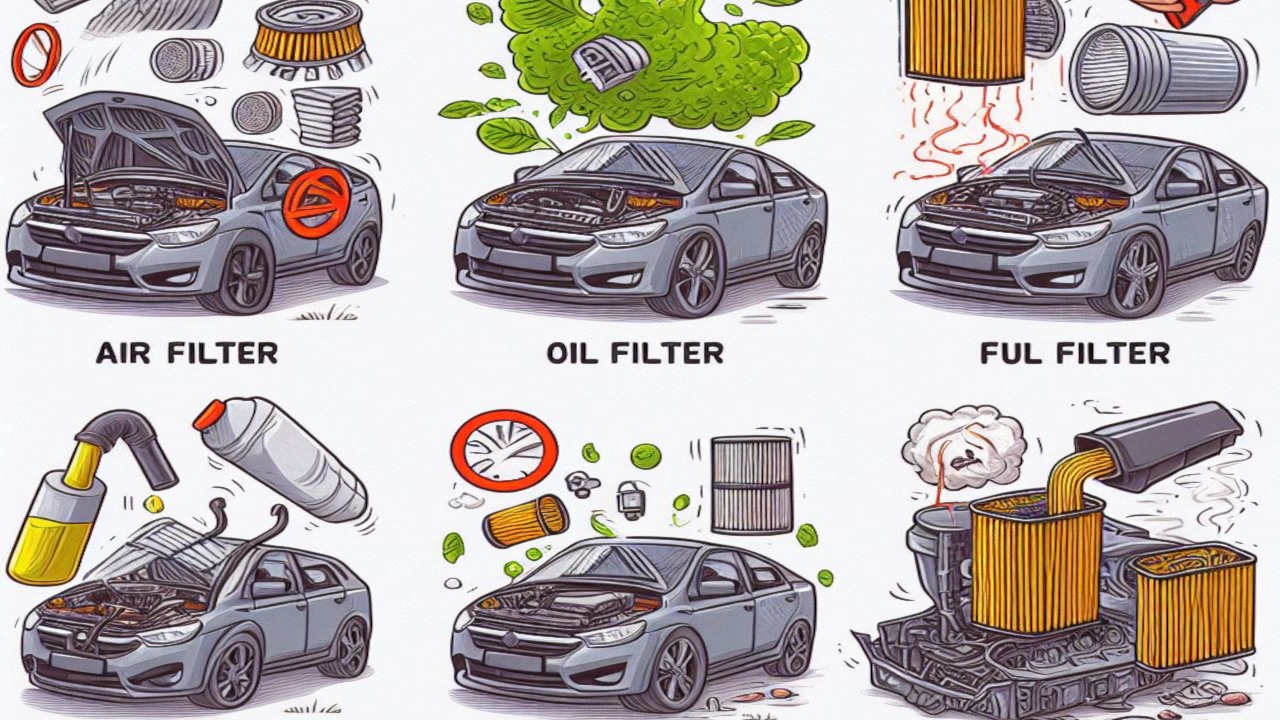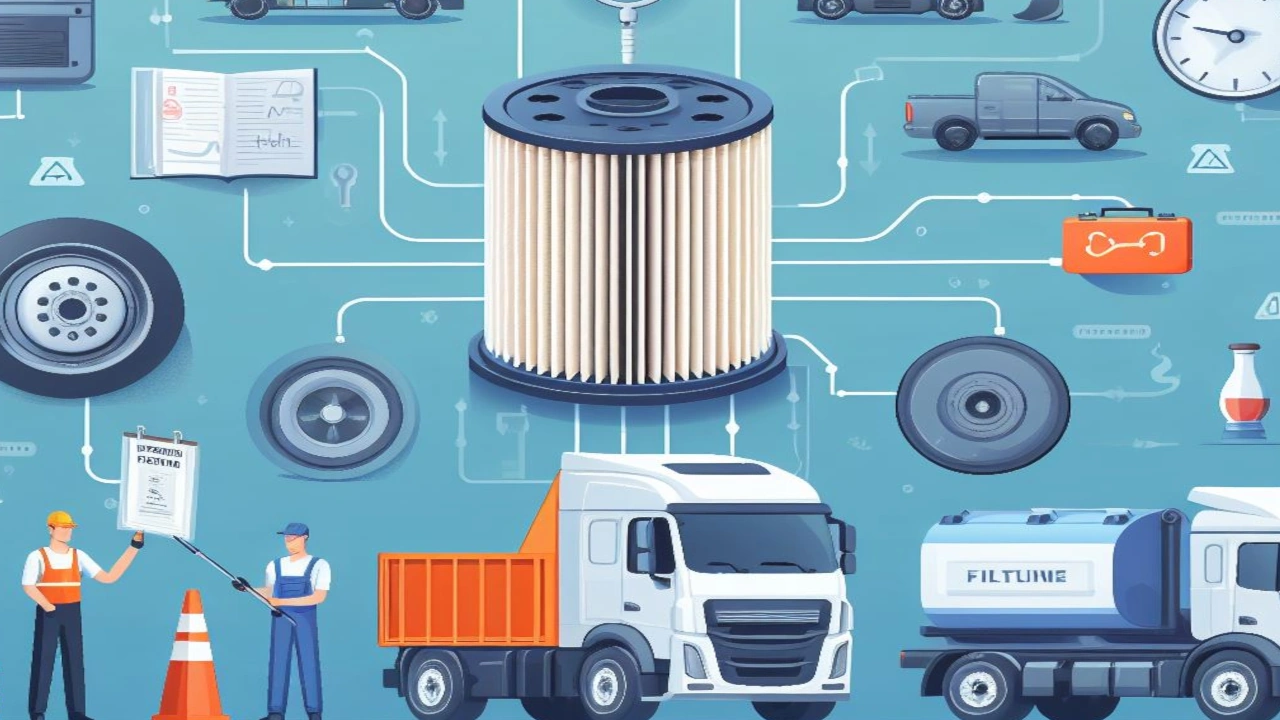Introduction:
Is your car showing signs of wear and tear, struggling with gear shifts, or emitting strange noises? It might be time for a transmission replacement. At KNBService, we offer top-notch transmission replacement services to ensure your vehicle performs at its peak. Discover the benefits of our expert solutions below:
- Comprehensive Diagnostics
- Transparent Assessment
- Quality OEM Parts
- Skilled Technicians
- Customized Solutions
- Competitive Pricing
- State-of-the-Art Facilities
- Timely Turnaround
- Extended Warranty Options
- Conclusion
1. Comprehensive Diagnostics: Unveiling the Heart of Your Vehicle
Before embarking on any transmission replacement, our expert technicians at KNBService prioritize a meticulous and comprehensive diagnostics process. Here’s why it’s the crucial first step in ensuring the optimal performance of your vehicle:
Why Comprehensive Diagnostics Matter:
a. Pinpointing Transmission Issues: Our skilled technicians utilize cutting-edge diagnostic tools to identify and analyze potential problems within your vehicle’s transmission. From subtle irregularities to more apparent issues like slipping gears or unusual sounds, our diagnostics process leaves no stone unturned.
b. Accurate Assessment: Understanding the precise condition of your transmission is paramount. Through a thorough diagnostics procedure, we gain insights into the root causes of any malfunctions, enabling us to provide an accurate assessment of your transmission’s health.
c. Customized Solutions: No two vehicles are alike, and neither are their transmission needs. Our comprehensive diagnostics pave the way for personalized solutions. By tailoring our approach to your vehicle’s specific issues, we ensure that the recommended transmission replacement aligns with your car’s unique requirements.
d. Cost-Effective Decision Making: A detailed diagnostics process allows us to identify whether a transmission replacement is the most viable solution. In some cases, targeted repairs may be sufficient, saving you time and money. Our commitment to transparency ensures you’re informed and empowered to make cost-effective decisions.
e. Preventive Maintenance Planning: Beyond addressing immediate concerns, our diagnostics process aids in preventive maintenance planning. By identifying potential issues before they escalate, we help you avoid future breakdowns, ensuring the longevity and reliability of your vehicle.
Our Diagnostics Expertise:
Equipped with state-of-the-art diagnostic tools and years of experience, our technicians are adept at unraveling the intricacies of your vehicle’s transmission system. Trust us to deliver a comprehensive diagnostics assessment that serves as the foundation for an effective and tailored transmission replacement solution.
At KNBService, we believe that a thorough diagnostics process is not just about identifying problems; it’s about empowering you with the knowledge needed to make informed decisions about your vehicle’s transmission health. Schedule your diagnostics appointment today and take the first step toward reviving your ride.
2. Transparent Assessment: Your Roadmap to Informed Decisions
At KNBService, transparency isn’t just a commitment; it’s a cornerstone of our service philosophy. When it comes to assessing your vehicle’s transmission, we prioritize clear communication and openness. Here’s why our transparent assessment process is crucial for your peace of mind:
Why Transparency Matters in Transmission Assessment:
a. Informed Decision-Making: We believe you deserve to be fully informed about the health of your vehicle. Our transparent assessment process ensures that you receive a detailed breakdown of the issues affecting your transmission. This knowledge empowers you to make decisions that align with your budget and priorities.
b. Clarity on Transmission Issues: When it comes to transmission problems, clarity is key. Our technicians provide a straightforward explanation of the identified issues, using language that allows you to understand the nature and severity of the problems. We demystify the technical aspects, giving you confidence in the recommended solutions.
c. Options and Alternatives: Your needs and preferences matter. In our transparent assessment, we present you with various options and alternatives. Whether it’s a full transmission replacement or targeted repairs, we outline the pros and cons, allowing you to choose the solution that best suits your situation.
d. Cost Transparency: No one likes surprises, especially when it comes to expenses. Our transparent assessment includes a detailed breakdown of costs associated with the recommended solutions. You’ll have a clear understanding of the financial investment required, helping you plan accordingly.
e. Collaboration in Decision-Making: We view our relationship with you as a collaboration. Through transparent communication, we invite you to be an active participant in the decision-making process. Your insights and preferences guide our recommendations, ensuring a solution that aligns with your priorities.
Our Transparent Assessment Process:
When you bring your vehicle to KNBService, expect a transparent assessment process that puts you in the driver’s seat. Our knowledgeable technicians will walk you through the findings, answer your questions, and provide the information you need to make confident decisions about your transmission.
Choose transparency; choose KNBService for a transmission assessment that goes beyond identifying issues – it empowers you to navigate the road ahead with clarity. Schedule your assessment today and experience the difference of open communication in car care.
3. Quality OEM Parts: Elevating Your Transmission Replacement Experience
At KNBService, we understand that the key to a reliable and long-lasting transmission replacement lies in the quality of the components used. That’s why we exclusively rely on Original Equipment Manufacturer (OEM) parts. Here’s why our commitment to quality OEM parts sets us apart:
Why Quality OEM Parts Matter:
a. Precision and Compatibility: OEM parts are designed to meet the exact specifications of your vehicle’s manufacturer. This precision ensures seamless compatibility with your car’s transmission system, minimizing the risk of compatibility issues that can arise with aftermarket components.
b. Reliability and Durability: When it comes to your vehicle’s performance, reliability is non-negotiable. OEM parts undergo rigorous testing to meet stringent quality standards. This dedication to quality translates into enhanced durability and reliability, ensuring your new transmission performs optimally for an extended period.
c. Warranty Support: Choosing OEM parts often comes with the added benefit of warranty support. This warranty provides you with peace of mind, knowing that in the rare event of a manufacturing defect, you have the backing of the original equipment manufacturer.
d. Consistency in Performance: OEM parts are consistent in their performance because they are engineered to the same standards as the original components in your vehicle. This consistency ensures that your new transmission operates in harmony with the rest of the drivetrain, maintaining the overall performance of your car.
e. Resale Value Preservation: Quality matters not only during your ownership but also when it’s time to sell or trade-in your vehicle. Using OEM parts helps preserve the resale value of your car, as potential buyers or dealerships recognize the use of genuine components as a mark of quality and care.
Our Commitment to Quality:
When you entrust us with your transmission replacement, you can rest assured that every component used is a genuine OEM part. Our dedication to quality extends beyond skilled workmanship to the very materials we use, ensuring your vehicle receives the best care it deserves.
Choose KNBService for a transmission replacement experience that prioritizes the quality and authenticity of OEM parts. Schedule your service today and elevate your ride with components designed to meet the highest standards of excellence.
4. Skilled Technicians: Craftsmanship in Transmission Excellence
When it comes to your vehicle’s transmission replacement, the expertise of our skilled technicians at KNBService makes all the difference. Here’s why our team of professionals stands out in delivering precision and craftsmanship:
Why Skilled Technicians Make a Difference:
a. Specialized Knowledge: Our technicians possess specialized knowledge in transmission systems. With ongoing training and a deep understanding of the latest automotive technologies, they navigate the complexities of transmission replacements with confidence and expertise.
b. Diagnostic Prowess: Beyond replacing parts, our technicians excel in diagnostics. They leverage advanced tools to identify intricate issues within your transmission, ensuring that the root causes are addressed for a comprehensive and effective replacement.
c. Hands-On Experience: Experience matters, and our technicians bring years of hands-on experience to the service bay. Their familiarity with a diverse range of vehicles equips them to handle various transmission models, providing you with a reliable and tailored replacement solution.
d. Commitment to Excellence: Craftsmanship is at the core of our technician’s approach. Each transmission replacement is executed with a commitment to excellence, ensuring that every component is installed with precision and attention to detail.
e. Continuous Learning: In the ever-evolving automotive landscape, our technicians prioritize continuous learning. Staying updated on industry advancements, they incorporate the latest techniques and best practices into their work, guaranteeing that your transmission replacement is executed with cutting-edge knowledge.
Our Technicians in Action:
When you bring your vehicle to KNBService, you’re entrusting it to a team of professionals who take pride in their craft. Our skilled technicians approach each transmission replacement as a unique project, combining their knowledge, experience, and dedication to deliver results that exceed expectations.
Experience the craftsmanship of our skilled technicians firsthand. Schedule your transmission replacement with KNBService and enjoy the confidence that comes with having experts dedicated to elevating your driving experience.
5. Customized Solutions: Tailoring Transmission Replacements to Your Vehicle’s Needs
At KNBService, we understand that every vehicle is as unique as its driver. That’s why our commitment to providing customized transmission replacement solutions is at the forefront of our service. Discover how our approach ensures your vehicle receives the precise care it deserves:
Why Customized Solutions Matter:
a. Addressing Unique Transmission Needs: No two vehicles are identical, and neither are their transmission requirements. Our customized solutions take into account the specific needs and nuances of your vehicle’s transmission, ensuring that the replacement is precisely tailored to address its unique issues.
b. Personalized Recommendations: Our technicians conduct a thorough assessment of your transmission, considering factors such as mileage, usage patterns, and any specific challenges your vehicle may be facing. This personalized approach enables us to make recommendations that align with your car’s individual characteristics.
c. Optimal Performance and Longevity: By customizing our approach, we optimize the performance and longevity of your vehicle’s transmission. Whether it’s selecting components based on manufacturer specifications or fine-tuning adjustments during the replacement process, our goal is to enhance the overall driving experience.
d. Cost-Effective Solutions: Customization doesn’t mean excessive costs. On the contrary, our tailored solutions are designed to be cost-effective. We identify the most efficient and budget-friendly ways to address your transmission issues while maintaining the highest standards of quality.
e. Future-Proofing Your Vehicle: Anticipating future needs is a key element of our customized approach. We take into account potential stress points and challenges in your vehicle’s transmission system, implementing solutions that not only address current issues but also contribute to future-proofing your car.
How Customization Works:
When you choose KNBService for a transmission replacement, our technicians work closely with you to understand your driving habits, concerns, and preferences. This collaborative approach ensures that the solutions we propose align with your unique situation, creating a customized roadmap for your vehicle’s transmission health.
Experience the benefits of customized transmission solutions. Schedule your appointment with KNBService and let us tailor our expertise to the distinctive needs of your vehicle.
6. Competitive Pricing: Value-Packed Transmission Replacements
At KNBService, we believe that quality transmission replacements shouldn’t come with a hefty price tag. Our commitment to competitive pricing ensures that you receive exceptional value without compromising on the caliber of service. Here’s why our approach to affordability sets us apart:
Why Competitive Pricing Matters:
a. Accessibility to Quality Services: Competitive pricing makes top-notch transmission replacements accessible to a wider range of vehicle owners. We believe that everyone deserves reliable and skilled automotive care, and our pricing reflects this commitment to inclusivity.
b. Transparent Cost Breakdown: When you choose us for a transmission replacement, we provide a transparent breakdown of costs. You’ll know exactly where your investment is going, allowing you to make informed decisions based on your budget and priorities.
c. No Hidden Fees: Our pricing philosophy is straightforward – what you see is what you get. We believe in honesty and transparency, and that means no hidden fees or surprise charges. The price you agree upon is the price you pay.
d. Affordability Without Compromise: Competitive pricing doesn’t mean cutting corners on quality. Our skilled technicians and commitment to using OEM parts ensure that you receive a transmission replacement that meets the highest standards, all at a competitive price point.
e. Tailored Solutions for Your Budget: We understand that every vehicle owner has unique financial considerations. Our competitive pricing allows us to offer tailored solutions that accommodate your budget without compromising the integrity of the service provided.
Our Pricing Philosophy:
At KNBService, competitive pricing is more than just a strategy – it’s a reflection of our dedication to providing exceptional value to our customers. We strive to make quality transmission replacements an affordable reality for all vehicle owners.
Choose us for a transmission replacement that not only revitalizes your ride but also leaves your wallet happy. Schedule your service today and experience the perfect balance of quality and affordability at KNBService.
7. State-of-the-Art Facilities: Elevating Transmission Service Excellence
At KNBService, we believe that cutting-edge facilities are integral to delivering exceptional transmission services. Our commitment to state-of-the-art facilities ensures your vehicle receives the highest standard of care. Discover why our modern facilities set the stage for transmission service excellence:
Why State-of-the-Art Facilities Matter:
a. Advanced Diagnostic Equipment: Our facilities are equipped with the latest diagnostic tools and technology. This allows our technicians to conduct precise and thorough assessments of your transmission, identifying issues with unparalleled accuracy.
b. Precision in Repairs and Replacements: Modern facilities enable us to execute transmission replacements with unparalleled precision. From the removal of old components to the installation of new ones, our state-of-the-art equipment ensures each step is carried out with the utmost accuracy.
c. Efficient and Timely Service: Cutting-edge facilities streamline our processes, resulting in efficient and timely transmission services. Your vehicle spends less time in the shop, and you get back on the road faster, without compromising the quality of the service provided.
d. Adherence to Industry Standards: Our facilities are designed to meet and exceed industry standards. This commitment ensures that every aspect of your transmission service, from diagnostics to replacements, aligns with the best practices and advancements in automotive technology.
e. Continuous Innovation: State-of-the-art facilities provide the perfect environment for continuous innovation. We stay abreast of the latest advancements in transmission technology, allowing us to integrate new techniques and methodologies into our services for the benefit of your vehicle.
Our Facility Advantage:
When you entrust your vehicle to KNBService, you’re choosing a service provider with a commitment to excellence through modernization. Our state-of-the-art facilities create an environment where your transmission service is not just a task but a seamless and technologically advanced experience.
Experience the difference that modern facilities make in transmission service. Schedule your appointment at KNBService and discover how our commitment to state-of-the-art excellence sets us apart in the automotive service industry.
8. Timely Turnaround: Swift and Efficient Transmission Services
At KNBService, we understand the importance of getting you back on the road promptly. Our commitment to a timely turnaround sets the pace for swift and efficient transmission services. Discover why our dedication to prompt service makes us the go-to choice for your vehicle’s transmission needs:
Why Timely Turnaround Matters:
a. Minimized Downtime: We recognize that your time is valuable. Our focus on a timely turnaround ensures that your vehicle spends minimal time in the shop, allowing you to resume your daily activities without prolonged downtime.
b. Efficient Diagnosis and Planning: Our skilled technicians leverage advanced diagnostic tools for efficient problem identification. With a clear understanding of your transmission issues, we develop a precise plan of action, streamlining the repair or replacement process for optimal efficiency.
c. Streamlined Service Processes: Modern and streamlined service processes in our facilities contribute to a faster turnaround. From initial diagnostics to the final quality checks, every step is optimized to ensure your transmission service is completed promptly without compromising on quality.
d. Transparent Communication: Clear and transparent communication is key to a timely turnaround. We keep you informed at every stage of the process, providing updates on the status of your vehicle and any unexpected developments that may impact the timeline.
e. Expedited Parts Sourcing: Through our network and partnerships, we expedite the sourcing of necessary parts for your transmission service. This proactive approach ensures that components are readily available, contributing to a faster and more efficient turnaround.
Our Timely Turnaround Promise:
When you choose KNBService, you’re choosing a team committed to delivering not only quality transmission services but also doing so in a timely manner. We understand the importance of your vehicle in your daily life, and our goal is to get you back on the road as swiftly as possible.
Experience the convenience of a timely turnaround. Schedule your transmission service at KNBService and enjoy the assurance that your vehicle is in the hands of a team dedicated to efficiency and promptness.
9. Extended Warranty Options:
At KNBService, we believe in providing more than just exceptional transmission services – we offer extended warranty options to provide you with lasting peace of mind. Discover why our commitment to extended warranties sets us apart in ensuring your confidence and satisfaction:
Why Extended Warranty Options Matter:
a. Additional Coverage Beyond Repairs: Our extended warranty options go beyond the immediate repair or replacement. They provide additional coverage for specified components, offering a safeguard against unexpected issues that may arise after your transmission service is complete.
b. Budget-Friendly Protection: An extended warranty is an investment in the long-term health of your vehicle. It provides budget-friendly protection against potential future issues, giving you the assurance that your transmission – and your wallet – are shielded from unforeseen expenses.
c. Flexibility in Coverage Plans: We understand that every vehicle owner’s needs are unique. Our extended warranty options offer flexibility in coverage plans, allowing you to choose the level of protection that aligns with your driving habits, mileage, and long-term expectations.
d. Confidence in Quality Service: By offering extended warranties, we express our confidence in the quality of our transmission services. It’s a testament to the reliability of our workmanship and the use of genuine OEM parts, ensuring that you drive away with the confidence that your vehicle is well-protected.
e. Simplified Claim Process: Our extended warranty options come with a simplified and hassle-free claim process. In the rare event that an issue arises, we work diligently to ensure the process is smooth, providing you with the support you need without unnecessary delays.
Our Warranty Commitment:
When you choose KNBService, you’re not just investing in a one-time service – you’re investing in the longevity and reliability of your vehicle. Our extended warranty options reflect our commitment to your ongoing satisfaction and confidence in the quality of our transmission services.
Experience the assurance of extended warranty protection. Schedule your transmission service at KNBService and enjoy the added benefit of lasting peace of mind on the road.
10. Conclusion: Elevate Your Driving Experience with Confidence
At KNBService, we understand that your vehicle is more than just a mode of transportation – it’s an essential part of your daily life. Our commitment to excellence in transmission services is rooted in the belief that every driver deserves a reliable and smooth driving experience.
From our state-of-the-art facilities and skilled technicians to competitive pricing, timely turnaround, and extended warranty options, we go above and beyond to ensure your satisfaction. When you choose us for your transmission needs, you’re choosing a partner dedicated to the long-term health and performance of your vehicle.
Our tailored and transparent approach, combined with the use of quality OEM parts, reflects our commitment to providing customized solutions that cater to your unique driving requirements. Whether you’re in need of a comprehensive diagnostics check, transparent assessment, quality OEM parts, skilled technicians, competitive pricing, state-of-the-art facilities, timely turnaround, or extended warranty options, we’ve got you covered.
At KNBService, it’s not just about fixing your vehicle – it’s about elevating your entire driving experience. Trust us with your transmission service, and experience the difference that comes with a team dedicated to your satisfaction and the well-being of your vehicle.
Schedule your appointment today and embark on a journey of unparalleled service and confidence on the road. Your satisfaction is our priority, and we look forward to exceeding your expectations at every turn. Drive with confidence – drive with KNBService.








